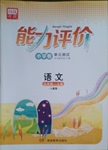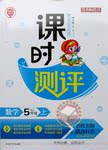题目内容
After spending a year in Brazil on a student exchange program, her mother recalled(回忆), Marie Colvin returned home to find that her classmates had narrowed down their college choices. “Everyone else was already admitted to college,” her mother, Rosemarie Colvin, said from the family home. “So she took our car and drove up to Yale and said , ‘You have to let me in .’ ”
“Impressed--she was a National Merit (全国英才) finalist who had picked up Portuguese in Brazil--Yale did, admitting her to the class of 1978, where she started writing for the Yale Daily News and decided to be a journalist,” her mother said.
On Wednesday, Marie Colvin, 56, an experienced journalist for The Sunday Times of London, was killed as Syrian forces shelled(炮击) the city of Homs. She was working in a temporary media center that was destroyed in the attack.
“She was supposed to leave Syria on Wednesday”, Mrs. Colvin said. “Her editor told me he called her yesterday and said it was getting too dangerous and they wanted to take her out. She said she was doing a story and she wanted to finish it.”
Mrs. Colvin said it was pointless to try to prevent her daughter from going to conflict zones. “If you knew my daughter,” she said, “it would have been such a waste of words. She was determined, she was enthusiastic about what she did, it was her life. There was no saying ‘Don’t do this.’ This is who she was , absolutely who she was and what she believed in :cover the story, not just have pictures of it, but bring it to life in the deepest way you could.” “So it was not a surprise when she took an interest in journalism,” her mother said.
1.From the underlined sentence in Paragraph 1, we can infer that ________ .
A. Yale was her last choice
B. Marie Colvin was confident of herself
C. Yale must keep its promise to Marie Colvin
D. Marie Colvin was good at persuading
2.Which of the following is the correct order to describe Marie Colvin’s life ?
a. She was doing a story in Syria and got killed.
b. She was admitted to Yale University.
c. She studied in Brazil as an excellent student.
d. She was hired by The Sunday Times of London.
e. She began to take an interest in journalism.
A. d→e→c→a→b B. b→c→d→e→a
C. e→d→c→b→a D. c→b→e→d→a
3.From the last paragraph, we can know that Mrs. Colvin ________.
A. dislikes the choice of her daughter.
B. cares little about her daughter.
C. knows her daughter very well.
D. doesn’t fully appreciate her daughter.
4.What can be the best title of the text ?
A. Covering Stories in a Dangerous Conflict Area.
B. Applying for Top Universities, a Successful Case
C. Choosing Lifelong Careers Based on Your Own Interest.
D. Recalling Her Daughter, a Journalist Killed in Syria.
 能力评价系列答案
能力评价系列答案 唐印文化课时测评系列答案
唐印文化课时测评系列答案
